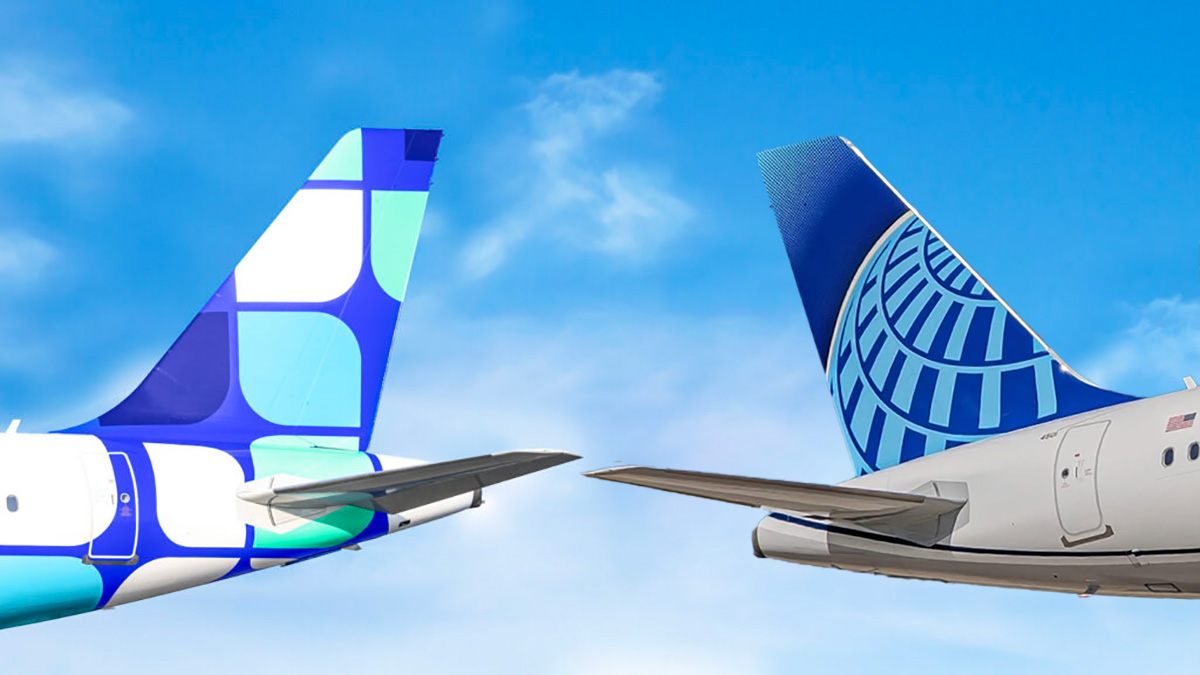JetBlue-United Partnership: What We Know So Far

After days of speculation, Reuters confirmed from “multiple sources” that United Airlines and JetBlue Airways are in talks over a partnership, however, the extent of that relationship is anything but clear. I have a few theories, though.
JetBlue And United In Advanced Partnership Talks
Let’s first return to United’s February denial of a merger with JetBlue. At the time, the carrier said:
It has come to the Company’s attention that there may be rumors spreading among certain of our investors regarding United’s involvement in a potential strategic transaction with another airline. The Company is not in negotiations or discussions with any other airline regarding a merger, acquisition or similar strategic transaction and has not been in any recent discussions with any airlines regarding the same. As indicated by United’s strong earnings results and outlook provided on January 21, 2025, the Company has great momentum and a bright future ahead.
While United denied it was in talks for a merger or acquisition, it did not deny that it was in talks with another carrier about a partnership of some kind.
Now “multiple sources” claim JetBlue and United are in advanced discussions over a limited but strategic partnership:
- It is “quite different” from the Northeast Alliance JetBlue had with American Airlines
- The two carriers will not coordinate on schedules and pricing
- There will be reciprocal frequent flyer mile benefits
This comes after JetBlue President Marty St. George was asked about a domestic partnership yesterday and said:
“I need to make sure I reserve my comments based on what we have said publicly. And what we have said is we are looking at and we’re talking to multiple airlines about domestic partnerships. I think we’re getting very close to making an announcement and expect to make the announcement this quarter. And as far as the benefits that we expect to offer to our customers, now the most important thing is number one, a significantly higher network opportunity for earn and burn of TrueBlue points, which we think greatly improves utility of TrueBlue.
“Today, if you are a customer in the Northeast and you love JetBlue for leisure, but, you know, twice a year, you have to go to Omaha or Boise, these are places that you can’t earn through Blue points on now. And when this partnership goes forward, you will be able to. And the second thing is I’m really excited for just the overall broadening of the network opportunities, you know, not just connectivity, but also just sort of better opportunities for our customers to fly more places with more frequency.”
On that basis, I see this playing out in three possible ways.
Scenario #1: A Partnership Like Emirates
United and Emirates have a loose relationship whereby MileagePlus members traveling on United between Newark (EWR) and Dubai (DXB) can earn miles for connecting flights on Emirates. Furthermore, MileagePlus members can redeem miles on Emirates flights on select routes between Dubai (DXB) and Africa, the Middle East, and the South Asian Subcontinent as part of an award reservation that includes a United flight between Newark (EWR) and Dubai (DXB) all on the same ticket.
I can imagine a scenario where United may allow MileagePlus earning or redemptions (and vice versa on True Blue) in cases where passengers book a connecting itinerary that includes both United and JetBlue segments.
United also has a limited codesharing relationship, which appears will not be present at this time with JetBlue.
Scenario #2: JetBlue Joins Star Alliance
We might see JetBlue join the Star Alliance network, which (at first glance) would hurt United more than help because it might incentivize Star Alliance flyers to connect in New York (JFK) and Boston (BOS) on JetBlue versus Newark (EWR) or Washington (IAD) on United.
However, United may feel that locking JetBlue into Star Alliance would at least prevent JetBlue from partnering with American Airlines, Southwest Airlines, or Alaska Airlines (the latter of which, to me, makes the most sense of all, considering the almost wholly complementary route networks).
Scenario #3: United Taking The Steady Wins The Race Approach
Even under the Trump Administration, a merger of JetBlue and United would (arguably dangerously) concentrate power at United in New York City. Rather than an outright merger or acquisition, we could see United play the long game. First, a reciprocal frequent flyer partnership. Second, codesharing and alliance. Third, perhaps many years down the line, an acquisition.
As far-fetched as that may sound, I’m having trouble understanding what benefit a reciprocal frequent flyer relationship alone is to United…does it really want MileagePlus members flying JetBlue instead of United?
CONCLUSION
It seems “official” that JetBlue and United are exploring a partnership, though both carriers have been tight-lipped about the ongoing discussions. I find a limited partnership hard to understand unless it is an action aimed at preventing other partnerships or laying the groundwork for a deeper partnership in the years to come. What is United offering that American Airlines did not?
Any other theories as to what United’s motive would be behind this limited partnership?